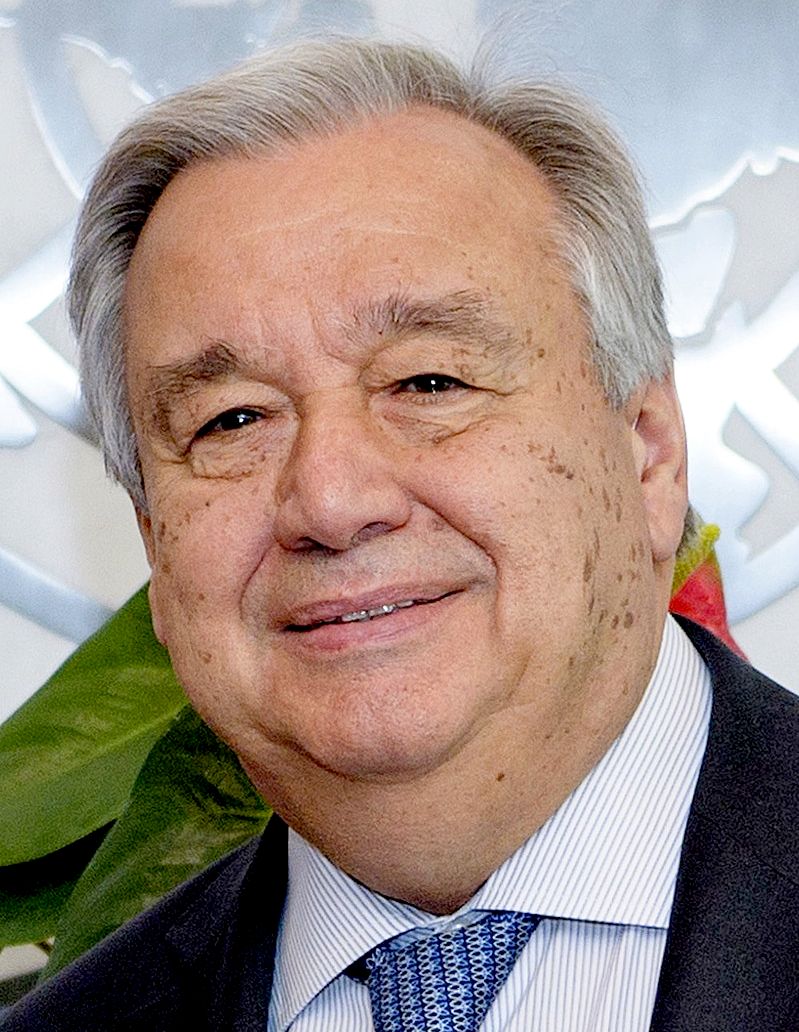António Manuel de Oliveira Guterres GCC GCL (born 30 April 1949) is a Portuguese politician and diplomat serving as the ninth secretary-general of the
United Nations. A member of the Portuguese Socialist Party, he served as prime minister of Portugal from 1995 to 2002.
Guterres served as secretary-general of the Socialist Party from 1992 to 2002. He was elected prime minister of Portugal in 1995 and resigned in 2002 after the Socialist Party was defeated in the 2001 Portuguese local elections. After six years governing without an absolute majority and with a bad economy, the Socialist Party did worse than expected because of losses in Lisbon and Porto, where polls showed it with a solid lead. Eduardo Ferro Rodrigues assumed the Socialist Party leadership, but the general election was lost to the Social Democratic Party, led by José Manuel Barroso.
Guterres served as president of the Socialist International from 1999 to 2005. He was the United Nations High Commissioner for Refugees from 2005 to 2015. In both a 2012 and 2014 poll, the Portuguese public ranked him the best prime minister of the previous 30 years.
Guterres became United Nations Secretary-General on 1 January 2017, following his formal election by the UN General Assembly on 13 October 2016.
On 29 February 2016, Guterres submitted his nomination as Portugal's candidate for the 2016 UN Secretary-General selection. This was the first time candidates for secretary-general had to present their platform in public hearings in the UN General Assembly, a process during which Guterres emerged as a much stronger candidate than had been initially expected, given that he fit the bill on neither the gender nor the geographic scores.
On 5 October, the 15-member United Nations Security Council announced that it had agreed to nominate Guterres, after an informal secret ballot in which he gained 13 "encourage" votes and two "no opinion" votes. The Security Council officially nominated Guterres in a formal resolution on 6 October. A week later, he was formally elected by the United Nations General Assembly in its 71st session. Guterres took office on 1 January 2017.
The UN's role in the Haiti cholera outbreak was widely discussed and
criticized after the Ban
Ki-moon administration denied the issue for several months. According to the Boston-based Institute for Justice & Democracy in Haiti as well as numerous conclusive scientific studies, the UN is the proximate cause for bringing cholera to Haiti. Peacekeepers sent to Haiti from Nepal in 2010 were carrying asymptomatic cholera and failed to treat their waste properly before dumping it into one of Haiti's main water streams.
During his UNSG informal dialogue, Jamaica, on behalf of the Caribbean Community, asked if the UN should assume liability for any deaths within local populations that result from the introduction of infectious disease by its peacekeepers. Jamaica also asked if Guterres believed compensation should be provided. Guterres responded by calling the situation a "particularly complex question", saying it was difficult to preserve diplomatic immunity while also ensuring there is no impunity, but that he would "pay a lot of attention in trying to find the right equilibrium between these two aspects that are absolutely crucial".
In a UN General Assembly meeting in late October 2016, the representative from Haiti called the UN's current and future response to the cholera epidemic "a litmus test of the system's commitment to the promotion of
human
rights". Though many had hoped Guterres's term would mark a break with the inaction that characterized Ban's response to the epidemic, Guterres has done little to signal a commitment to Haitian cholera victims. As of April 2017, five months into his term as secretary-general, only $10 million had been contributed to the $400 million fund to fight cholera and provide material assistance to victims the UN announced in 2016.
In 2016, Anders Kompass exposed the sexual assault of children by peacekeepers in the Central African Republic and, as a consequence, was dismissed by Ban's administration before being rehabilitated in court. During the United Nations Secretary-General Candidate informal dialogues, Guterres indicated it was completely unacceptable that there be UN forces committing human rights violations such as
rape and sexual violence. "All of us
together - states and UN - must do our utmost to ensure that any kind of action of this type is severely punished," he said.
The United States raised the question of international tribunals to try peacekeepers for their crimes. Guterres responded by saying an independent jurisdiction would be excellent but that "the only way to get there is through a new compact with all key
parties - true contributors, financial contributors - and to make sure that there is an adjustment in the relation between countries, the UN, and the support those that are contributing with troops receive, in order to be able to do it much better." He also indicated that there is a gap between theoretical zero tolerance and the ineffective zero tolerance that actually exists on the ground and needs to be overcome.
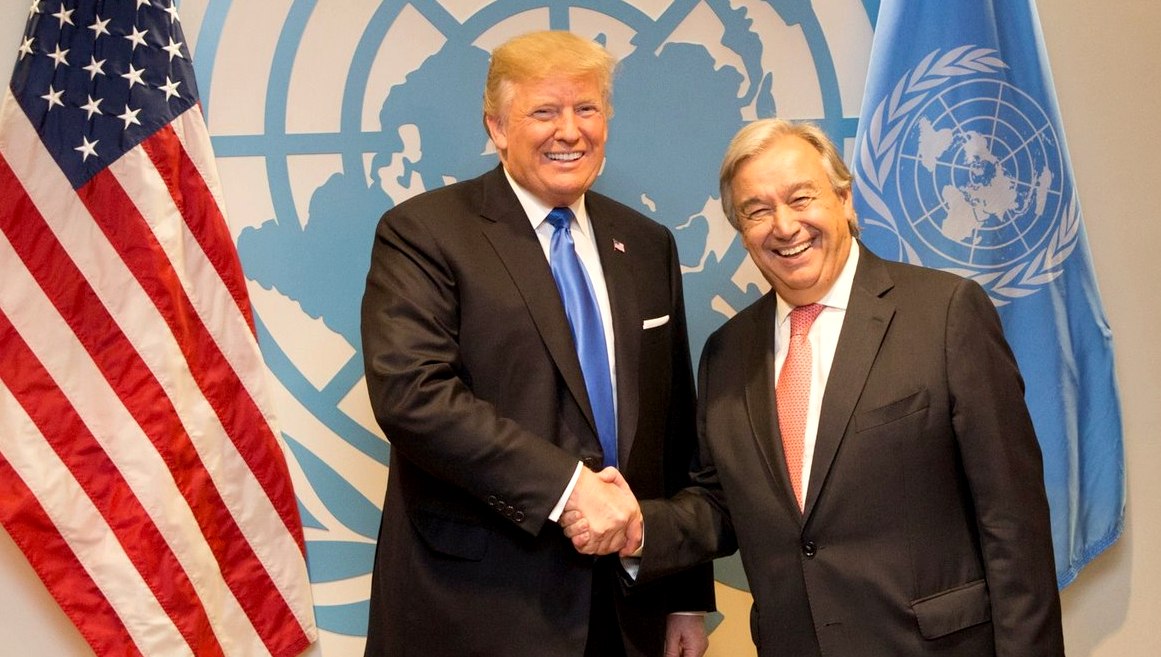
CAREER HIGHS AND LOWS
On 1 January 2017, on his first day at the helm of the United Nations as secretary-general, Guterres pledged to make 2017 a year for peace. "Let us resolve to put peace first," he said.
On 12 April 2017, Guterres appointed an 8-member Independent Panel to assess and enhance the effectiveness of UN-Habitat after Adoption of the New Urban Agenda. The panel's recommendation to establish an independent coordinating mechanism, ‘UN-Urban’ met with criticism from urban experts and the African Urban Institute.
On 20 June 2017, "Secretary-General António Guterres warned the Trump administration ... that if the United States disengages from many issues confronting the international community it will be replaced."
In response to the death of Chinese Nobel Peace Prize laureate Liu Xiaobo, who died of organ failure while in government custody, Guterres said he was deeply saddened.
After the violence during the 2017 Catalan independence referendum, Guterres trusted Spanish institutions to find a solution. He gave the same message when Catalonia declared independence on 27 October 2017 but said the solution should be made under the constitutional framework.
Guterres criticized the Saudi Arabian-led intervention in Yemen and the naval, land and air blockade of Yemen. The blockade has further aggravated Yemen's severe humanitarian crisis. Guterres said that the intervention in Yemen "is a stupid war. I think this war is against the interests of Saudi Arabia and the Emirates... [and] of the people of Yemen."
Guterres opposed President Trump's decision to recognize Jerusalem as Israel's capital.
In March 2018, Guterres said the population of Syria's Eastern Ghouta was living in "hell on earth". In one district, 93% of buildings had been damaged or destroyed by December, according to UN satellite imagery analysis. A recent wave of bombings has caused further destruction.
Guterres called the 2018 North Korea–United States summit a "crucial milestone" for nuclear disarmament. He urged both sides to "seize this momentous opportunity" and offered UN assistance to achieve the goal of dismantling North Korea's nuclear weapons program.
In August 2018, Guterres called for an independent investigation into a Saudi Arabian-led coalition air strike in Yemen that killed 51 civilians, including 40 children.
Guterres condemned the persecution of the Rohingya Muslim minority in Myanmar and called for a stronger response to the crisis.
In September 2018, during his address to the 73rd United Nations General Assembly, Guterres became the first secretary to say that advancing technology will disrupt labor markets like never before and to advocate stronger safety nets like Universal Basic Income.
In 2019, human rights groups criticized Guterres for being "silent" as China sent ethnic Uyghurs and other predominantly Muslim ethnic minorities to the Xinjiang re-education camps. Human Rights Watch chief Kenneth Roth said that Guterres "has been notably silent on one of the most important, ... the most brazen human rights abuses, ... because he is worried about upsetting the Chinese."
In June 2019, Guterres stated that the "U.N. has the obligation to assume global leadership" in tackling climate change in the context of a visit to the pacific island of Tuvalu. He had previously supported other multilateral environmental initiatives, such as the Global Pact for the Environment that was put forward by France in September 2017.
In September 2019, Guterres condemned Israeli plans to annex the eastern portion of the occupied West Bank known as the Jordan Valley.
Guterres expressed his "deep concern" at the spiralling violence in Syria a day after Turkey launched an offensive in Kurdish-controlled areas. He said any solution to the conflict needed to respect the sovereignty of the territory and the unity of Syria.
Guterres praised the Israel–United Arab Emirates peace agreement, stating that he welcomes "any initiative that can promote peace and security in the Middle East region." Guterres expressed the hope that the agreement between Israel and Sudan to normalize relations will create opportunities for peace and prosperity.
On 10 August 2020, responding to an explosion in Beirut, Guterres expressed his support for all people in need in Lebanon, especially women and girls who are most vulnerable in times of crisis. On 22 September, he appealed for global solidarity to overcome COVID-19, and again called for a global ceasefire by the end of 2020.
On 6 October 2020, Guterres expressed deep concern over the escalation of hostilities in the disputed region of Nagorno-Karabakh and called on Armenia and Azerbaijan to immediately halt fighting and progress towards a peaceful
resolution.
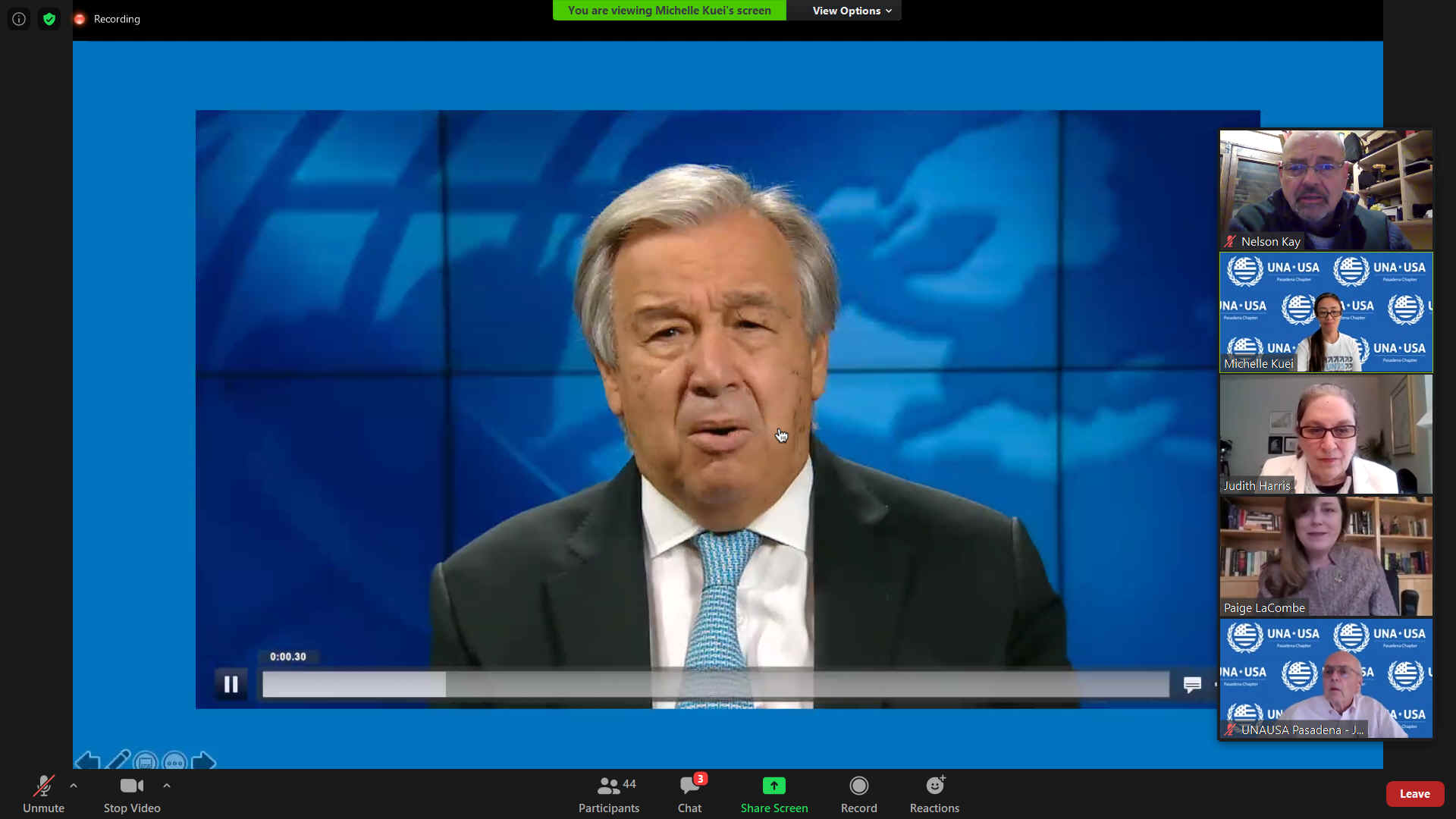
LIST
OF SECRETARY GENERAL'S
1 Trygve Lie
2 Dag Hammarskjöld
3 U Thant
4 Kurt Waldheim
5 Javier Pérez de Cuéllar
6 Boutros Boutros-Ghali
7 Kofi Annan
8 Ban Ki-moon
9 António Guterres
The role of secretary-general is described as combining the functions and responsibilities of an advocate, diplomat, civil servant, and CEO. The UN Charter designates the secretary-general as the "chief administrative officer" of the UN and allows him to perform "such other functions as are entrusted" by other United Nations organs. The Charter also empowers the secretary-general to inform the Security Council of "any matter which in his opinion may threaten the maintenance of international peace and security". These provision has been interpreted as providing broad leeway for officeholders to serve a variety of roles as suited to their preferences, skill set, or the circumstances.
The secretary-general's routine duties include overseeing the activities and duties of the Secretariat; attending sessions with United Nations bodies; consulting with world leaders, government officials, and other stakeholders; and traveling the world to engage with global constituents and bring attention to certain international issues. The secretary-general publishes an annual report on the work of the UN, which includes an assessment of its activities and an outline future priorities. He or she is also Chairman of the United Nations System Chief Executives Board for Coordination (CEB), a body composed of the heads of all UN funds, programmes and specialized agencies, which meets twice a year to discuss substantive and management issues facing the United Nations System.
Many of the secretary-general's powers are informal and left open to individual interpretation; some appointees have opted for more activist roles, while others have been more technocratic or administrative. The SG is often reliant upon the use of his or her "good offices", described as "steps taken publicly and in private, drawing upon his independence, impartiality and integrity, to prevent international disputes from arising, escalating or spreading". Consequently, observers have variably described the office as the "world's most visible bully pulpit" or as the "world's moderator". Examples include Dag Hammarskjöld's promotion of an armistice between the warring parties of Arab-Israel conflict, Javier Perez de Cuellar's negotiation of a ceasefire in the Iran-Iraq War, and U Thant's role in de-esalating the Cuban Missile Crisis.
SELECTION
The secretary-general is appointed by the General Assembly upon the recommendation of the Security Council. As the recommendation must come from the Security Council, any of the five permanent members of the Council can veto a nomination. Most secretaries-general are compromise candidates from middle powers and have little prior fame.
Unofficial qualifications for the job have been set by precedent in previous selections. The appointee may not be a citizen of any of the Security Council's five permanent members. The General Assembly resolution 51/241 in 1997 stated that, in the appointment of "the best candidate", due regard should be given to regional (continental) rotation of the appointee's national origin and to gender equality, although no woman has yet served as secretary-general. All appointees to date have been career diplomats.
The length of the term is discretionary, but all secretaries-general since 1971 have been appointed to five-year terms. Every secretary-general since 1961 has been re-selected for a second term, with the exception of Boutros Boutros-Ghali, who was vetoed by the United States in the 1996 selection. There is a term limit of two full terms, established when China cast a record 16 vetoes against Kurt Waldheim's third term in the 1981 selection. No secretary-general since 1981 has attempted to secure a third term.
The selection process is opaque and is often compared to a papal conclave. Since 1981, the Security Council has voted in secret in a series of straw polls; it then submits the winning candidate to the General Assembly for ratification. No candidate has ever been rejected by the General Assembly, and only once, in 1950, has a candidate been voted upon despite a UNSC veto.
In 2016, the General Assembly and the Security Council sought nominations and conducted public debates for the first time. However, the Security Council voted in private and followed the same process as previous selections, leading the president of the General Assembly to complain that it "does not live up to the expectations of the membership and the new standard of openness and transparency".
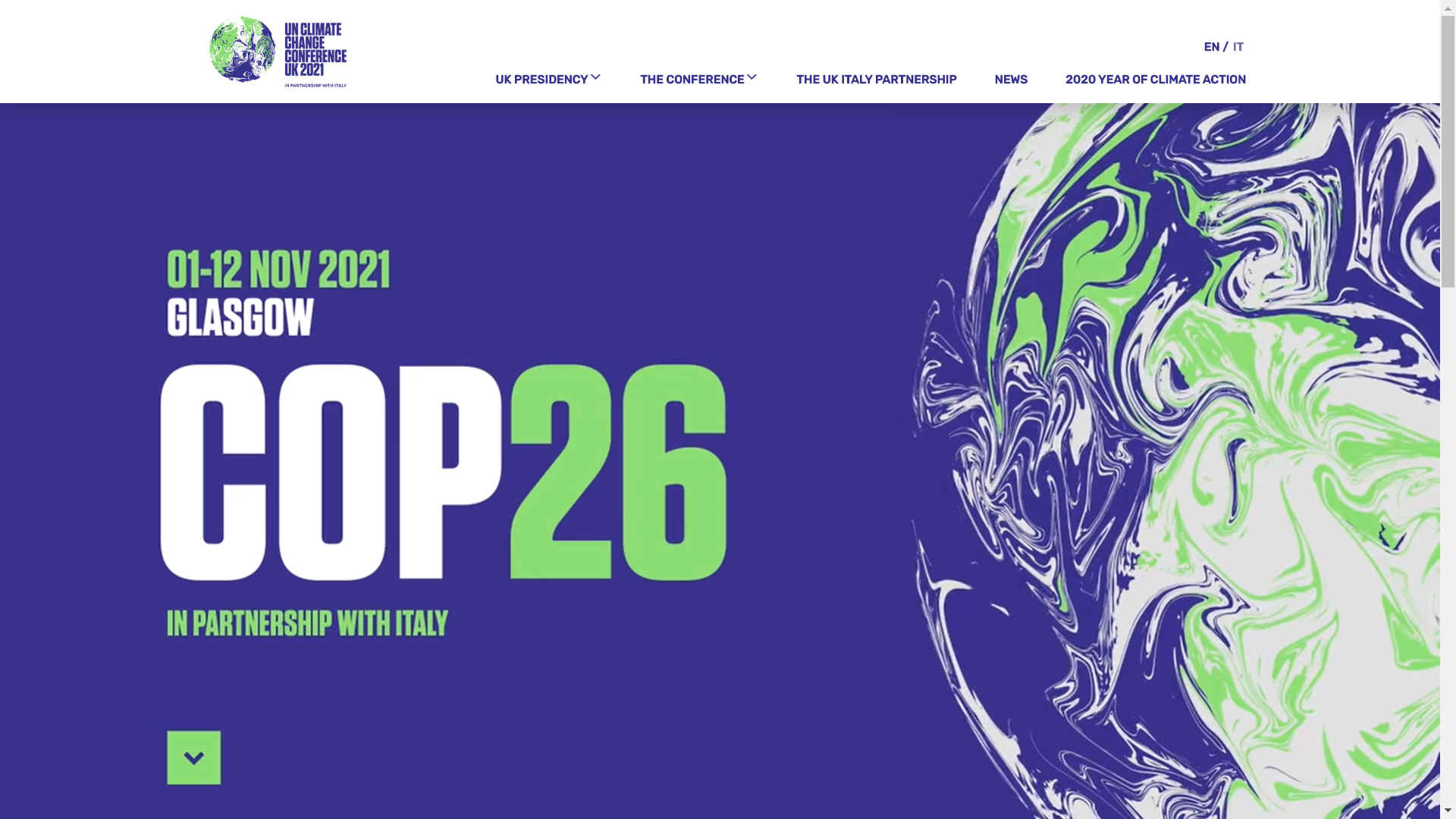
GLASGOW, SCOTLAND - The
United
Nations' climate summits are known as COP = Conference Of the Parties. This is the 24th, meaning twenty-four years during which these global discussions have been unable to put in place a binding action plan to save us from global warming. In 2018 fifty high profile companies wrote to the UN calling for solid action to curb climate change. The 26th session of the UNFCCC was originally scheduled to take place from 9-19 November 2020, in Glasgow, UK. On 28 May 2020, the COP Bureau decided that it would take place from
1-12 November
2021, in Glasgow, UK
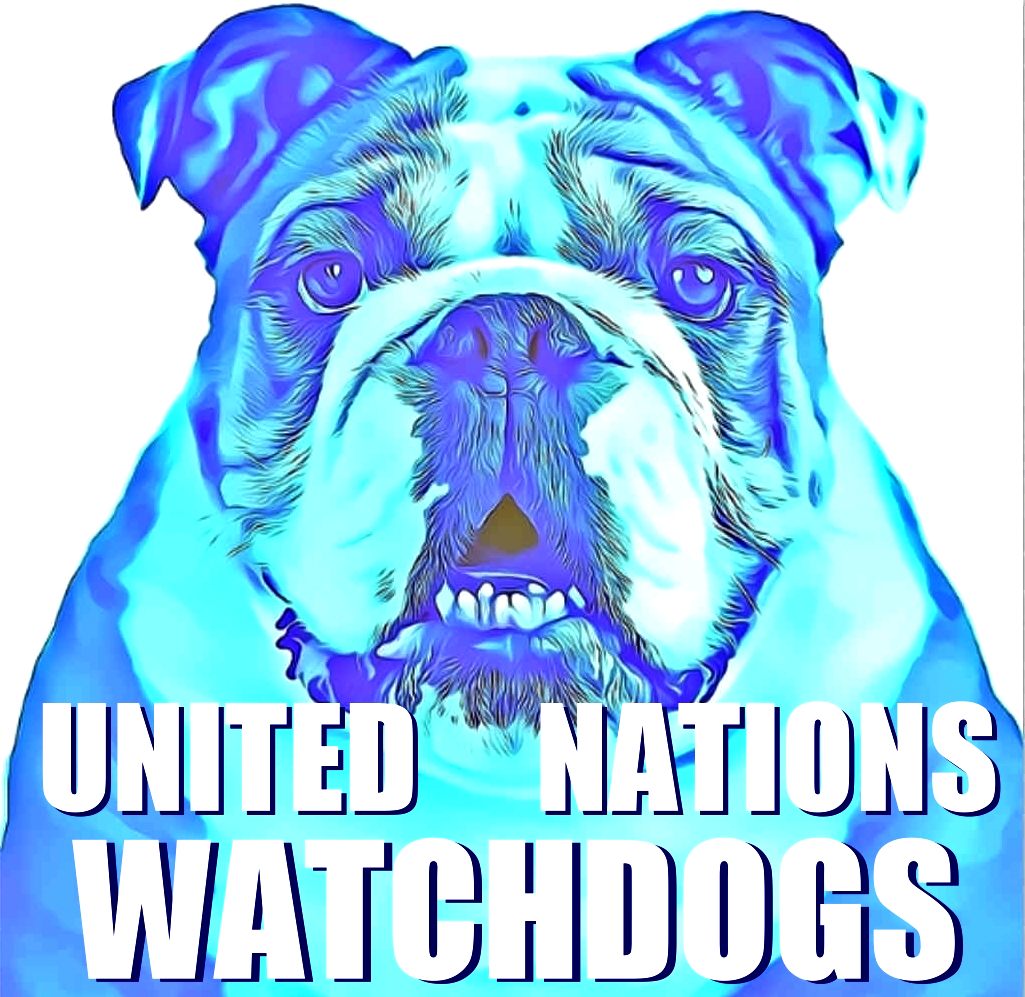
Please use our
A-Z INDEX to
navigate this site, or our HOMEPAGE
